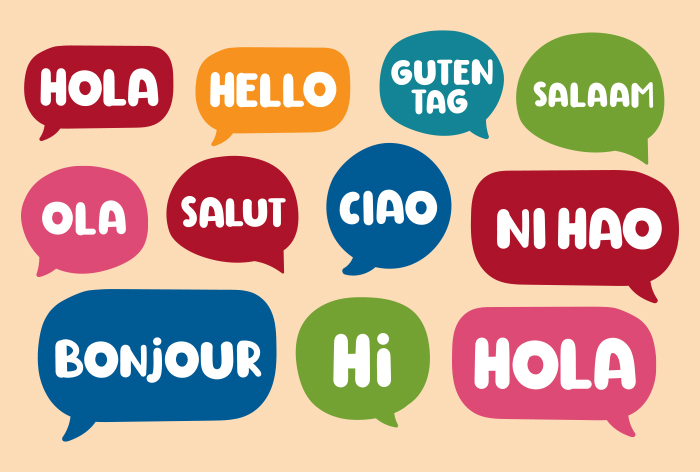Learn a new language from home with our digital resources
Posted on April 29, 2020 at 6:00 am

By Dana Mannino
Use of language learning apps is on the rise!
Who would have guessed that being stuck at home would make so many people want to learn a new language?
As a bilingual librarian, I am delighted. This means that many more people will be interested in celebrating this week’s library holiday, Día de los Niños / Día de los Libros.
Día de los ninõs/Día de los libros translates as Day of the children/Day of the books.
In the U.S., this celebration is the brainchild of bilingual author Pat Mora. Mora imagined it as a literary enhancement of Children’s Day, a holiday celebrated in many Latin American countries on April 30. She teamed up with libraries and Latino community groups to organize the first celebration in 1997. Since then, Día has become a day on which libraries celebrate (among other things) reading in multiple languages.
If you are among the many who are brushing up on a world language during your quarantine, then you may have discovered that reading can become your secret weapon to success. Books use more varied vocabulary than conversation, introduce the reader to idioms, and are very rewarding!
While studying Spanish in college, I read a translation of a Harry Potter book over each summer break to prevent me from forgetting what I had learned. Now, over ten years later, I’m still conversant and still reading.
My Spanish book club is currently tackling Isabel Allende’s Largo Pétalo del Mar (the library also has the English translation). I credit Harry Potter with helping Spanish stick in my brain.
Reading is especially important for families who are trying to raise bilingual children. Reading aloud to your kids helps them learn words that don’t come up in daily conversations. Also, while hearing a language spoken in the home is usually enough to help children communicate with non-English speaking relatives, they will need to read and write the language as well if they want to visit another country independently, or use their language skills in the workplace.
If you are helping a school-age child learn a language, find a book in your preferred language (digital resources below) and take turns reading pages aloud together.
Take it a step further and help children write and illustrate their own short books. Writing letters to far away family members is also a great tool. Learning a language is a whole brain activity, so find ways every day to speak, read, write, or even sing in the language you are learning.
The library has many tools to get you reading in multiple languages.
First off, be sure to check out the library’s own free language learning app, Pronunciator. Perhaps you are already using another app like Duolingo. I encourage you to check out Pronunciator anyway. Using several different language apps assures that you are really learning the language, not just how to beat the app.
Children and adults learning Spanish or French will find a friend in TumbleBook Library. TumbleBook Library is a collection of digital picture books. Many of the picture books are presented in video format, so you can listen to a native speaker pronounce the text aloud as you read. And it’s okay to use the pause button to keep up!
In fact, many adult language learners find picture books helpful in their learning process. Picture books are not necessarily easier to read than adult books (they still use idioms that can trip a learner up), but readers can hunt for context clues in the illustrations.
Adult learners of Spanish should check out People magazine in Spanish on Flipster! Popular magazines are great language practice tools because they offer bite-sized reading challenges and use contemporary vocabulary.
OverDrive (and their Libby app) and hoopla offer books for children and adults in several languages. We’ve made booklists to highlight books in some languages, including the Spanish-language booklist Libros en Español. If you don’t see a list for the language of your choice, use the advanced search tool in each resource to filter by that language.
Both apps also offer audiobooks, and hoopla offers movies as well, both of which are a great chance to hear the language spoken. To maximize learning, combine an audiobook with an eBook to read along as you listen. The language will be entering your brain in two ways at once!
¡Feliz Día de los niños/Día de los libros!

Tags: adults, audiobooks, books, foreign language, hoopla, kids, language, language learning, overdrive, picturebooks, pronunciator, reading, Spanish, teens, tweens, world languages

